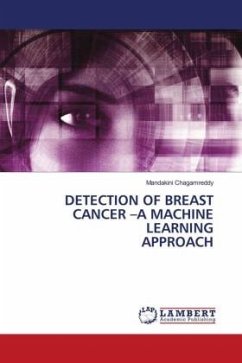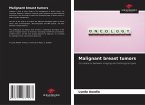Breast cancer is the second leading cause of death among women, often undetected until it reaches advanced stages. Early identification is crucial, as accurate classification of benign and malignant tumors can prevent unnecessary treatments. This study explores the application of machine learning techniques for breast cancer diagnosis using the Wisconsin Breast Cancer Dataset from the UCI Repository.Initial experiments with the Naïve Bayes classifier yielded 88% accuracy for benign and 86% for malignant tumors. However, it faced limitations, such as low accuracy and issues with zero frequency probabilities. Switching to Artificial Neural Networks (ANN) improved results to 90% for benign and 92% for malignant classifications, but still did not yield optimal outcomes.The research ultimately employed Support Vector Machine (SVM) techniques, achieving the highest accuracy at 97% for benign and 95% for malignant tumors. This method effectively distinguishes between tumor types using alinear model based on hyperplanes. All algorithms were implemented using the R tool, which is user-friendly and free, facilitating data handling for breast cancer classification.
Bitte wählen Sie Ihr Anliegen aus.
Rechnungen
Retourenschein anfordern
Bestellstatus
Storno








